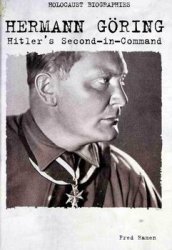‘Historians’, Peter Gay argues, ‘like to reject psychoanalysis as an auxiliary discipline with one sweeping, summary denial: you cannot psychoanalyze the dead. To make the attempt would be to introduce inappropriate techniques into historical inquiry, allow baseless speculation to subvert the explanatory process that has served historians so well for so long, and reduce the beautiful, variegated bouquet of thought and action to drab, depressing psychopathology. Historical individuals, groups, classes, nations, are not patients on the couch’, Gay ventriloquizes, ‘not even an imaginary couch’ (Gay 1985: 3). The postulate of a universal human nature, so often attributed to psychoanalysis, has been particularly displeasing to many scholars of the ancient world whose resolutely historicist training has warned them against such colonizing presumptions. Indeed, those historians who have been open to modern interdisciplinary perspectives would be much more inclined to follow the lead of a figure such as Michel Foucault (1926-1984) whose writings on antiquity are explicitly premised on understanding its social and sexual discourses as the manifestations of a society which has not known psychoanalysis.
And yet, as Gay points out, ‘the professional historian has always been a psychologist - an amateur psychologist’ (Gay 1985: 6). Gay argues that despite his or her professions to the contrary, the historian always functions with some notion of human nature. Such a conception has to be the precondition of exploring historical causation and of attributing motives to the actors of the past. Only a rigorously structuralist or systemic analysis which denies agency to the individual and insists on the decisive role of external, supra-human structures can avoid the retrojective postulation of a common understanding of mind. Gay argues that even the historical materialism of Marxism which insists so heavily on the determinism of external economic and social pressures relies for its analyses on a certain theory of the mind (Gay 1985: 6).
In this chapter I want to argue that beyond this inescapability of a certain psychological vocabulary, Freudian psychoanalysis, in particular, has something to contribute to our understanding of the past. In the studying the relationship between ‘history’ and ‘theory’ I shall be exploring how psychoanalysis can offer reception studies a different way of understanding the temporality of meaning, a different way of conceptualizing how the pastness of the past impacts on its meaning in the present. Reception studies have often been figured within the field of Classics as antithetical to history. This vision is articulated most clearly by Charles Martindale (1993, 2006) but has been opposed by a number of other practitioners of classical reception, most notably by Simon Goldhill (2002) who has argued for the idea of reception as a form of cultural history. In this sense, the debates within Classics parallels the changing understanding of reception theory within other disciplines. Machor and Goldstein’s collection Reception Study: From Literary Theory to Cultural Studies (2001), clearly marks the trajectory for reception set out by Goldhill. But it is worth remembering that the impetus for Hans-Robert Jauss’s (1921-1997) formulation of a Rezeptionsdsthetik was a desire to move beyond overly historical models of reading where the meaning of a text was exclusively located in its ‘original’ moment of production. Indeed, Jauss presents reception theory as an explicit attack on positivism and its desire to reconstruct the ‘past as it really was’ divorced from its meaning in the present (Jauss 1982). It would be difficult to deny that by studying the evolving meanings of the artefacts of antiquity across time, the scholar of reception removes the classical text from its original context and threatens to erase the essential historical dimension of the object of her/his inquiry. Reception theory and his-toricism have thus often been seen as competing and even irreconcilable discourses.
The charge of ahistoricism which has been laid against reception theory could perhaps be seen as the most explicit example of a more generalized desire to oppose the study of the past ‘as such’ to theoretically informed models which highlight the essential role the process of recovery of the past plays in our understanding of historical cultures. Reception theory, then, is just one of a number of ‘theories’ which has been seen as standing in the way of exploring antiquity in its own terms. But reception perhaps more than any other field has explicitly set itself the task of probing this supposed opposition between ‘history’ and ‘theory’. In this chapter I want to explore how thinking of Freudian psychoanalysis as a form of reception can help one develop a better model for explaining these tensions which have lain behind many of the debates between classicists in recent decades. More specifically, by investigating Freud’s (1856-1939) own writings about history, I shall argue, that the scholar of reception can begin to articulate a more subtle understanding of the trace of the past which is able to resist the most aggressive of modern appropriations. Reading Freud can expose not just the necessary historicism of reception studies but it can also show how reception theory has a significant role to play in redefining the project of history for scholars of the ancient world.




 World History
World History









